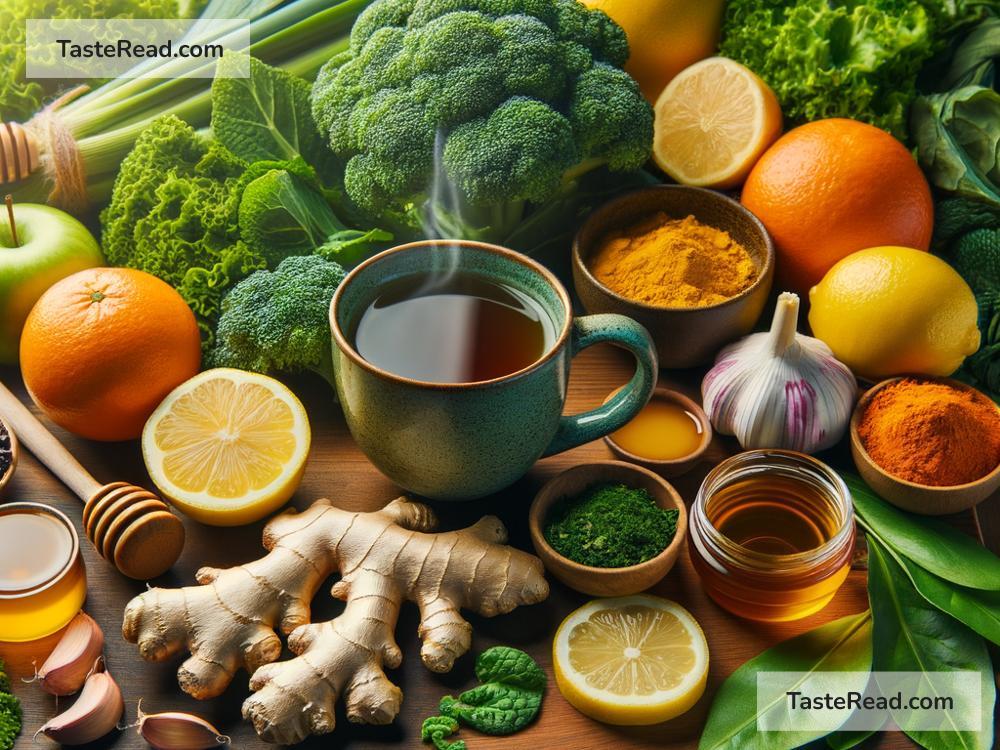Foods for Respiratory Health: Eating Your Way to Better Breathing
Our lungs are hardworking organs, responsible for letting us breathe, speak, and live our lives day to day. But with pollution, seasonal allergies, smoking, and even common colds, our respiratory system often faces challenges. The good news is that proper nutrition can play a major role in keeping your lungs healthy and strong. Certain foods are packed with nutrients that can reduce inflammation, promote good lung function, and help protect against diseases. In this article, we’ll explore some of the best foods for respiratory health—and why they’re worth adding to your plate.
Fruits and Vegetables: Nature’s Medicine
Fruits and vegetables are rich in vitamins, antioxidants, and other lung-friendly nutrients. Here’s why they’re essential:
-
Apples: There’s truth to the saying, “An apple a day keeps the doctor away.” Apples contain antioxidants like flavonoids and vitamin C, which can reduce inflammation in the lungs and lower your risk of asthma and lung disease.
-
Citrus Fruits: Oranges, grapefruits, lemons, and limes are packed with vitamin C, a powerful antioxidant that strengthens your immune system and helps protect against respiratory infections.
-
Leafy Greens: Spinach, kale, and other leafy greens are rich in magnesium, which supports lung function and relaxes your airway muscles. These vegetables also have carotenoids, which can act as antioxidants to fight free radicals that harm your lungs.
-
Carrots: High in beta-carotene, carrots promote healthy lungs and may reduce asthma symptoms. Beta-carotene converts into vitamin A, which strengthens your respiratory system.
-
Berries: Blueberries, strawberries, and blackberries are loaded with antioxidants that protect your cells from damage caused by pollution and other environmental toxins.
Omega-3 Fatty Acids: Feed Your Lungs
Healthy fats like omega-3 fatty acids are not only good for your heart—they are great for your lungs, too! They reduce inflammation and improve overall lung function. Foods rich in omega-3s include:
- Fatty Fish: Salmon, mackerel, tuna, and sardines are loaded with omega-3 fats, which can help reduce symptoms of asthma and other inflammatory lung conditions.
- Walnuts: These are a great plant-based source of omega-3s and make a satisfying snack.
- Flaxseeds and Chia Seeds: Both are excellent sources of omega-3 fats and are easy to add to smoothies or oatmeal.
Spices and Herbs: Enhancing Flavor and Lung Health
Certain spices and herbs are not only delicious—they also have medicinal properties that boost respiratory health:
-
Turmeric: Turmeric contains a compound called curcumin, which has anti-inflammatory and antioxidant benefits. It’s especially helpful for people with chronic lung conditions like asthma or chronic obstructive pulmonary disease (COPD).
-
Ginger: Ginger helps reduce inflammation in the airway, making it easier to breathe. It’s also great for treating coughs and clearing mucus from the lungs.
-
Garlic: Garlic is full of allicin, a compound that has antibacterial, antiviral, and anti-inflammatory properties. It supports your immune system and helps protect your lungs from infections.
-
Oregano: This herb is a good source of carvacrol and rosmarinic acid, compounds that may help fight bacteria and viruses that affect the lungs.
Whole Grains: Breathing Made Better
Whole grains like oats, brown rice, and whole wheat are full of fiber, selenium, and magnesium—nutrients that are great for lung health. Fiber is particularly important, as it aids digestion, reduces inflammation, and helps your lungs work more efficiently. Whole grains also provide steady energy, which keeps your body strong and resistant to illness.
Nuts and Seeds: Tiny Packages of Nutrition
Nuts and seeds are nutrient-dense foods that provide important minerals like magnesium and selenium. These minerals are essential for maintaining healthy lung tissue and reducing inflammation. Brazil nuts, in particular, are one of the best sources of selenium, a powerful antioxidant.
Hydration: Supporting Lung Function
While food plays a key role in respiratory health, don’t overlook hydration. Drinking enough water helps keep the lining of your lungs thin and moist, enabling them to work properly. Herbal teas can also double as lung-friendly drinks, especially if they contain calming ingredients like chamomile, peppermint, or licorice root.
Foods to Avoid
Just as there are foods that support respiratory health, some can negatively affect your lungs. Avoid or limit these foods:
- Processed and Fried Foods: These can lead to inflammation and may contribute to breathing difficulties over time.
- Excessive Sodium: High-salt diets can cause fluid retention and worsen lung diseases. When cooking, use natural seasonings rather than reaching for the salt shaker.
- Sugary Snacks and Sodas: Refined sugars can increase inflammation and weaken your immune system.
Conclusion
Taking care of your lungs isn’t just about avoiding harmful habits like smoking or staying active—it’s also about making smart food choices. By incorporating lung-friendly foods into your daily diet, you can help your respiratory system stay strong and healthy. Focus on fruits, vegetables, omega-3-rich foods, whole grains, nuts, seeds, and natural spices to give your lungs the support they need.
Remember, small changes in what you eat can lead to big improvements in how you breathe. Step by step, you can build a diet that nourishes your lungs and helps you live a healthier, more vibrant life. So enjoy that apple, sprinkle some turmeric on your meals, and take pride in giving your lungs the care they deserve!


